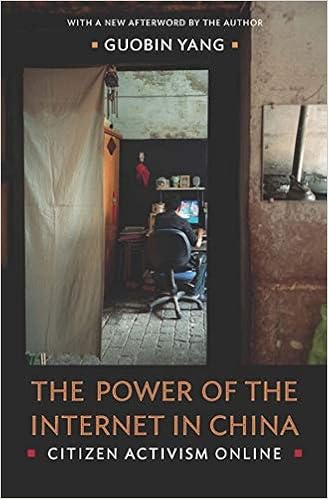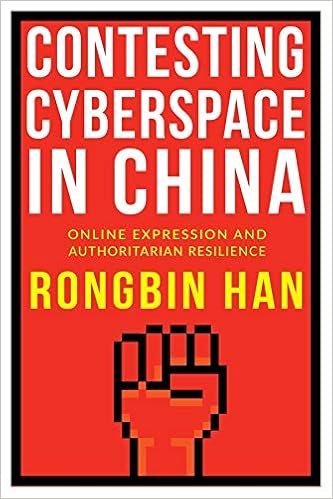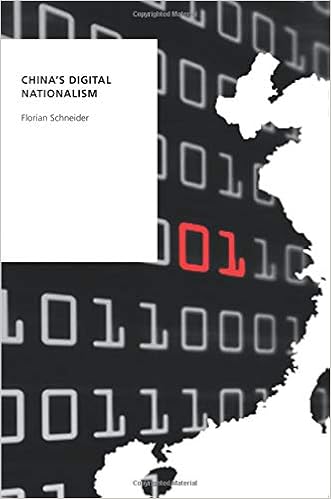

Guobin Yang’s study explores how the Internet has transformed popular expression and activism in China since the mid-1990s. He illustrates how cyberspace has become a contested arena of creativity, community, conflict, and control, where users organize, protest, and shape public opinion. Yang shows that online activism emerges from intersecting forces—transnational networks, protest traditions, civil society, and commercial interests—while state censorship spurs new forms of subversion. Internet businesses themselves often fuel these activities, creating a surprising synergy between commerce and activism. The book presents a vivid account of social change, marking the rise of a new era of informational politics.

Silvia Lindtner’s Prototype Nation examines how China’s shift from “copycat” manufacturing to a celebrated hub of innovation reshaped global tech imaginaries. Drawing on over a decade of ethnographic research across makerspaces, hackathons, incubators, and factories, Lindtner reveals how the maker movement’s ideals of democratized innovation became entangled with governance, policy, and entrepreneurial culture. She argues that entrepreneurial living not only rebranded China as a “new frontier” of innovation but also reinforced persistent inequalities, including sexism, racism, colonialism, and labor exploitation. The book situates China’s innovation boom within broader global transformations, showing how optimism and violence co-exist in technological development.

The Internet was supposed to be an antidote to authoritarianism. It can enable citizens to express themselves freely and organize outside state control. Yet while online activity has helped challenge authoritarian rule in some cases, other regimes have endured: no movement comparable to the Arab Spring has arisen in China. In Contesting Cyberspace in China, Rongbin Han offers a powerful counterintuitive explanation for the survival of the world’s largest authoritarian regime in the digital age.
Han reveals the complex internal dynamics of online expression in China, showing how the state, service providers, and netizens negotiate the limits of discourse. He finds that state censorship has conditioned online expression, yet has failed to bring it under control. However, Han also finds that freer expression may work to the advantage of the regime because its critics are not the only ones empowered: the Internet has proved less threatening than expected due to the multiplicity of beliefs, identities, and values online. State-sponsored and spontaneous pro-government commenters have turned out to be a major presence on the Chinese internet, denigrating dissenters and barraging oppositional voices. Han explores the recruitment, training, and behavior of hired commenters, the “fifty-cent army,” as well as group identity formation among nationalistic Internet posters who see themselves as patriots defending China against online saboteurs. Drawing on a rich set of data collected through interviews, participant observation, and long-term online ethnography, as well as official reports and state directives, Contesting Cyberspace in China interrogates our assumptions about authoritarian resilience and the democratizing power of the Internet.

Censored: Distraction and Diversion Inside China's Great Firewall
by Margaret E. Roberts
As authoritarian governments around the world develop sophisticated technologies for controlling information, many observers have predicted that these controls would be ineffective because they are easily thwarted and evaded by savvy Internet users. In Censored, Margaret Roberts demonstrates that even censorship that is easy to circumvent can still be enormously effective. Taking advantage of digital data harvested from the Chinese Internet and leaks from China's Propaganda Department, this important book sheds light on how and when censorship influences the Chinese public.
Roberts finds that much of censorship in China works not by making information impossible to access but by requiring those seeking information to spend extra time and money for access. By inconveniencing users, censorship diverts the attention of citizens and powerfully shapes the spread of information. When Internet users notice blatant censorship, they are willing to compensate for better access. But subtler censorship, such as burying search results or introducing distracting information on the web, is more effective because users are less aware of it. Roberts challenges the conventional wisdom that online censorship is undermined when it is incomplete and shows instead how censorship's porous nature is used strategically to divide the public.
Drawing parallels between censorship in China and the way information is manipulated in the United States and other democracies, Roberts reveals how Internet users are susceptible to control even in the most open societies. Demonstrating how censorship travels across countries and technologies, Censored gives an unprecedented view of how governments encroach on the media consumption of citizens.


China's Digital Nationalism
by Florian Schneider
Nationalism, in China as much as elsewhere, is today adopted, filtered, transformed, enhanced, and accelerated through digital networks. And as we have increasingly seen, nationalism in digital spheres interacts in complicated ways with nationalism "on the ground". If we are to understand the social and political complexities of the twenty-first century, we need to ask: what happens to nationalism when it goes digital?
In China's Digital Nationalism, Florian Schneider explores the issue by looking at digital China first hand, exploring what search engines, online encyclopedias, websites, hyperlink networks, and social media can tell us about the way that different actors construct and manage a crucial topic in contemporary Chinese politics: the protracted historical relationship with neighbouring Japan. Using two cases, the infamous Nanjing Massacre of 1937 and the ongoing disputes over islands in the East China Sea, Schneider shows how various stakeholders in China construct networks and deploy power to shape nationalism for their own ends. These dynamics provide crucial lessons on how nation states adapt to the shifting terrain of the digital age and highlight how digital nationalism is today an emergent property of complex communication networks.
Li Zheng, Anxious China: Inner Revolution and Politics of Psychotherapy
The breathless pace of China’s economic reform has brought about deep ruptures in socioeconomic structures and people’s inner landscape. Faced with increasing market-driven competition and profound social changes, more and more middle-class urbanites are turning to Western-style psychological counseling to grapple with their mental distress. This book offers an in-depth ethnographic account of how an unfolding “inner revolution” is reconfiguring selfhood, psyche, family dynamics, sociality, and the mode of governing in post-socialist times. Li Zhang shows that anxiety—broadly construed in both medical and social terms—has become a powerful indicator for the general pulse of contemporary Chinese society. It is in this particular context that Zhang traces how a new psychotherapeutic culture takes root, thrives, and transforms itself across a wide range of personal, social, and political domains.